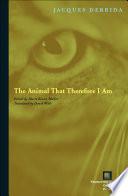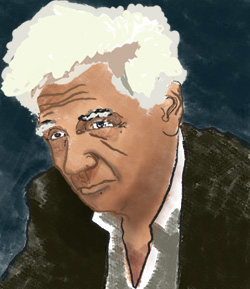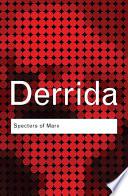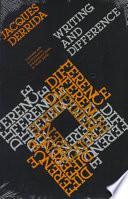Works

The Animal That Therefore I Am
Jacques Derrida
Limited Inc
Jacques DerridaFamous Jacques Derrida Quotes
Wear and Tears (tableu of a ageless world)
Specters of Marx (1993)
Context: The time is out of joint. The world is going badly. It is worn but its wear no longer counts. Old age or youth-one no longer counts in that way. The world has more than one age. We lack the measure of the measure. We no longer realize the wear, we no longer take account of it as of a single age in the progress of history. Neither maturation, nor crisis, nor even agony. Something else. What is happening is happening to age itself, it strikes a blow at the teleological order of history. What is coming, in which the untimely appears, is happening to time but it does not happen in time. Contretemps. The time is out of joint. Theatrical speech, Hamlet's speech before the theater of the world, of history, and of politics. The age is off its hinges. Everything, beginning with time, seems out of kilter, unjust, dis-adjusted. The world is going very badly, it wears as it grows, as the Painter also says at the beginning of Timon of Athens (which is Marx's play, is it not). For, this time, it is a painter's speech, as if he were speaking of a spectacle or before a tableau: "How goes the world?-It wears, sir, as it grows.
“I speak only one language, and it is not my own.”
Source: Monolingualism of the Other: or, The Prosthesis of Origin
Jacques Derrida: Trending quotes
Wear and Tears (tableu of a ageless world)
Specters of Marx (1993)
Jacques Derrida Quotes
“No differeance without alterity, no alterity without singularity, no singularity without here-now.”
Injunctions of Marx, p,31
Specters of Marx (1993)
Structure, Sign and Play
Writing and Difference (1978)
Wear and Tears (tableu of a ageless world)
Specters of Marx (1993)
Context: The time is out of joint. The world is going badly. It is worn but its wear no longer counts. Old age or youth-one no longer counts in that way. The world has more than one age. We lack the measure of the measure. We no longer realize the wear, we no longer take account of it as of a single age in the progress of history. Neither maturation, nor crisis, nor even agony. Something else. What is happening is happening to age itself, it strikes a blow at the teleological order of history. What is coming, in which the untimely appears, is happening to time but it does not happen in time. Contretemps. The time is out of joint. Theatrical speech, Hamlet's speech before the theater of the world, of history, and of politics. The age is off its hinges. Everything, beginning with time, seems out of kilter, unjust, dis-adjusted. The world is going very badly, it wears as it grows, as the Painter also says at the beginning of Timon of Athens (which is Marx's play, is it not). For, this time, it is a painter's speech, as if he were speaking of a spectacle or before a tableau: "How goes the world?-It wears, sir, as it grows.
Some Statements and Truisms about Neologisms, Newisms, Postisms, Parasitisms, and other small Seismisms, The States of Theory, ed. David Carroll, New York: Columbia University Press, 1989.
Derrida Jacques, Elisabeth Weber (1995), Points...: Interviews, 1974-1994. p. 115
“Surviving - that is the other name of a mourning whose possibility is never to be awaited.”
Source: The Politics of Friendship
Force and Signification
Writing and Difference (1978)
il n'y a pas de hors-texte
"This question is therefore not only of Rousseau's writing but also of our reading. ...the writer writes <i>in</i> a language and <i>in</i> a logic whose proper system, laws, and life his discourse by definition cannot dominate absolutely. ...reading... cannot legitimately transgress the text toward something other than it... . <i>There is nothing outside of the text </i>[there is no outside-text; <i>il n'y a pas de hors-texte</i>]."
Specters of Marx (1993), 1960s
The Animal That Therefore I Am (1997)
"Structure, Sign, and Play in the Discourse of the Human Sciences," Writing and Difference, tr. w/ intro & notes by Alan Bass. The University of Chicago Press. Chicago, 1978. p. 285
Source: Positions (1982), p. 41-42
Injunctions of Marx
Specters of Marx (1993)
The Animal That Therefore I Am (1997)
Cogito and The History of Madness, p.37 (Routledge classics edition)
Writing and Difference (1978)
Cogito and The History of Madness (Routledge classics edition)
Writing and Difference (1978)
"The Ends of Man," Margins of Philosophy, tr. w/ notes by Alan Bass. The University of Chicago Press. Chicago, 1982. (original French published in Paris, 1972, as Marges de la philosophie). p. 116
Specters of Marx (1993), 1970s
Plato's Pharmacy, intro
Dissemination (1972)
Force and Signification
Writing and Difference (1978)
Exordium
Specters of Marx (1993)
Source: Positions (1982), p. 21
Plato's Pharmacy
Dissemination (1972)
Derrida (2003 documentary), referring to his personal library
Specters of Marx (1993), 2000s
Source: Positions (1982), p. 28
Source: Positions (1982), p. 29
We have heard this and we will hear it again.
Injunctions of Marx
Specters of Marx (1993)
Source: Positions, 1982, p. 21
Moscou aller-retour. Saint Etienne: De l’Aube, 1995.
Injunctions of Marx
Specters of Marx (1993)
“I am one of those marranes who no longer say they are Jews even in the secret of their own hearts.”
"Circumfession." In Jacques Derrida, eds. G. Bennington & J. Derrida, trans. G. Bennington. Chicago: University of Chicago Press, 1993, p. 170
Exordium
Specters of Marx (1993)
The animal looks at us, and we are naked before it. Thinking perhaps begins there.
Specters of Marx (1993), The Animal That Therefore I Am, 1997
Limited Inc (1977)
Injunctions of Marx
Specters of Marx (1993)
"The Ends of Man," Margins of Philosophy, tr. w/ notes by Alan Bass. The University of Chicago Press. Chicago, 1982. (original French published in Paris, 1972, as Marges de la philosophie). p. 123
“Circumcision, that’s all I’ve ever talked about.”
"Circumfession." In Jacques Derrida, eds. G. Bennington & J. Derrida, trans. G. Bennington. Chicago: University of Chicago Press, 1993, p. 70
Plato's Pharmacy, Pharmacia
Dissemination (1972)
Injunctions of Marx
Specters of Marx (1993)
Cogito and The History of Madness, p.37 (Routledge classics edition)
Writing and Difference (1978)
Force and Signification
Writing and Difference (1978)



